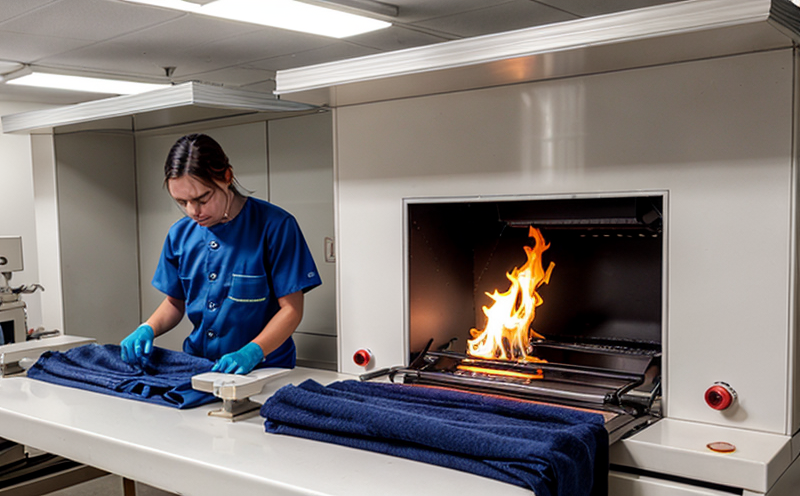Surface Ignition Testing of Textile Fabrics
The Surface Ignition Test is a critical procedure used to evaluate the flammability properties of textile fabrics. This test assesses how materials ignite and propagate flame under controlled conditions, which is essential for ensuring safety standards are met in industries where textiles come into direct contact with flames or heat sources.
This service is particularly vital in sectors such as automotive interiors, furniture manufacturing, and the production of protective clothing. By adhering to international standards like ISO 16928-1:2017 for seat cover fabrics used in motor vehicles, manufacturers can ensure their products meet stringent fire safety requirements.
The surface ignition test involves exposing a specimen cut from the fabric under specific conditions (e.g., temperature, humidity). The time to initial ignition and the rate of flame spread are key parameters measured. Proper preparation of specimens is crucial; this includes ensuring consistent dimensions and weight across samples. Instruments used in these tests typically include calorimeters equipped with specific igniters designed to mimic real-world scenarios accurately.
Flame propagation behavior can be influenced by various factors including chemical composition, structure, and finish applied to the fabric surface. Understanding how different variables affect test results helps manufacturers optimize their formulations for better fire resistance without compromising comfort or aesthetics.
The importance of consistent testing cannot be overstated; deviations from specified procedures could lead to inaccurate results that do not reflect actual performance under real-use conditions. Therefore, it's important to work with experienced labs like ours who can provide reliable data using state-of-the-art facilities and trained personnel.
Applied Standards
- ISO 16928-1:2017 – Seat cover fabrics for motor vehicles.
- ASTM D6413-15e1 – Textile materials; determination of flame retardant properties by surface ignition test method using a cone calorimeter.
Quality and Reliability Assurance
Ensuring reliable and consistent outcomes in Surface Ignition Testing requires adherence to strict protocols and calibration of equipment. Our laboratory maintains rigorous quality control measures, including regular audits by external bodies and internal reviews conducted by our highly qualified team.
- Conducting initial training sessions for all personnel involved in testing procedures.
- Implementing continuous monitoring systems to track performance metrics over time.
- Purchasing calibrated instruments regularly according to manufacturer recommendations.
Competitive Advantage and Market Impact
By offering Surface Ignition Testing services, we empower our clients to stay ahead of regulatory changes and competitive pressures. Compliance with industry standards enhances brand reputation and builds trust among consumers who value safety above all else.
Our comprehensive testing capabilities also assist businesses in developing new product lines that meet emerging demands from global markets. For instance, companies operating internationally benefit greatly from our expertise in navigating diverse regulatory landscapes while maintaining uniform quality standards worldwide.





